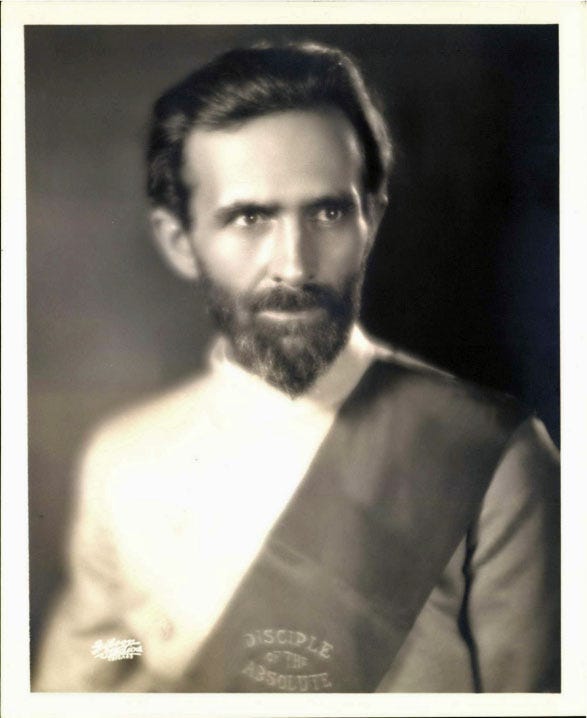What is the True Nature of Asceticism?
The term “ascetic” comes from the ancient Greek word áskēsis which means “training” or “exercise” as well as discipline.
The practice of asceticism then —or an ascesis— originally refers to an idea that is broader, deeper, and simpler in scope than what is generally understood in the present day i.e. as a primarily religious practice wrapped up with connotations of absolute external isolation, abstinence or mortification. Popular images of the ascetic are recalled as the emaciated Buddhist hermit meditating on a mountain all day or a Christian recluse pouring over Scripture while replacing meditation proper with prayer or, in the extreme case, engaging in self-flagellation and other harsh physical practices.
Or maybe just someone holding up their hand for 40+ years for “world peace” or some other ostentatious and idiosyncratic practice.



While these cases do indeed refer to real examples of various ascetic practices at particular points in history and culture, the essentials of the idea, as we have initially indicated, are simpler than the picture painted by these specific forms.
So then, what exactly does asceticism refer to?
Julius Evola — one of the most powerful minds of the 20th century — puts it succinctly:
Simply defined, that is to say as "training" or discipline, an ascesis aims at placing all the energies of the human being under the control of a central principle. In this respect we can, properly speaking, talk of a technique that has, in common with that of modern scientific achievements, the characteristics of objectivity and impersonality.1
So then, it seems like asceticism or ascesis is closer to a focus or concentration of energy towards some central purpose — without necessarily involving religious or even spiritual pursuits.
Can we then talk about an ascesis in the material world for material purposes? Indeed, Evola further elaborates on this:
Beyond all this, however, it is possible to conceive of and to work out what we may call a pure ascesis, that is to say, one made up of techniques for developing an
interior force, the use of which, to begin with, remains undetermined, like the use of the arms and machines produced by modern industrial techniques. Thus, while "ascetic" reinforcement of the personality is the foundation of every transcendental realization, whether in the form of one historical tradition or another, it can likewise be of great value on the level of the temporal aspirations and struggles that absorb practically all the energies of modern Western people. [emphasis mine]2
Taken in this sense, an ascesis appears to be more generally applicable and even desirable to anyone wanting to achieve something worthwhile. On this we have the following from another great esoteric philosopher of the 20th century, Franklin Merrell-Wolff:
I am convinced that for most natures and perhaps for all, a certain degree of ascetic practice is necessary if the individual is to attain his highest possibilities….A man may do this for the mastery of an art, of a science, for the building of a business, etc., just as well as for an objective of the type more commonly classified as religous.3


Summing up all of the above to answer the question posed in our headline then, the true meaning of an asceticism/ascesis is any sustained practice or line of endeavor towards which the whole of our internal energies and efforts are polarized.
Hopefully that clears up a few things, but this definition covers only the lowest rung of the ascesis ladder. Because —while we have spoken of asceticism at the undetermined material stage — the true value of an ascesis lies in its potential to take one all the way up to highest peak afforded in this life without necessitating all exoteric aspects relating to absolute isolation, severe carnal disciplines and even religious ethics which, seen in their proper place, become mere details when considering the true meaning of the term.
I’ll be writing more about this “higher ascesis” in future posts, as well as why this topic is even relevant to those of us living in modern times.
Thanks for reading.
Evola, Julius. 1996. The Doctrine of the Awakening : The Attainment of Self-Mastery according to Earliest Buddhist Texts. Inner Traditions Bear And Company, 5.
Evola, The Doctrine of the Awakening, 5.
Merrell-Wolff, Franklin. 1973. Pathways Through to Space: A Personal Record of Transformation in Consciousness. Julian Press, 186.




